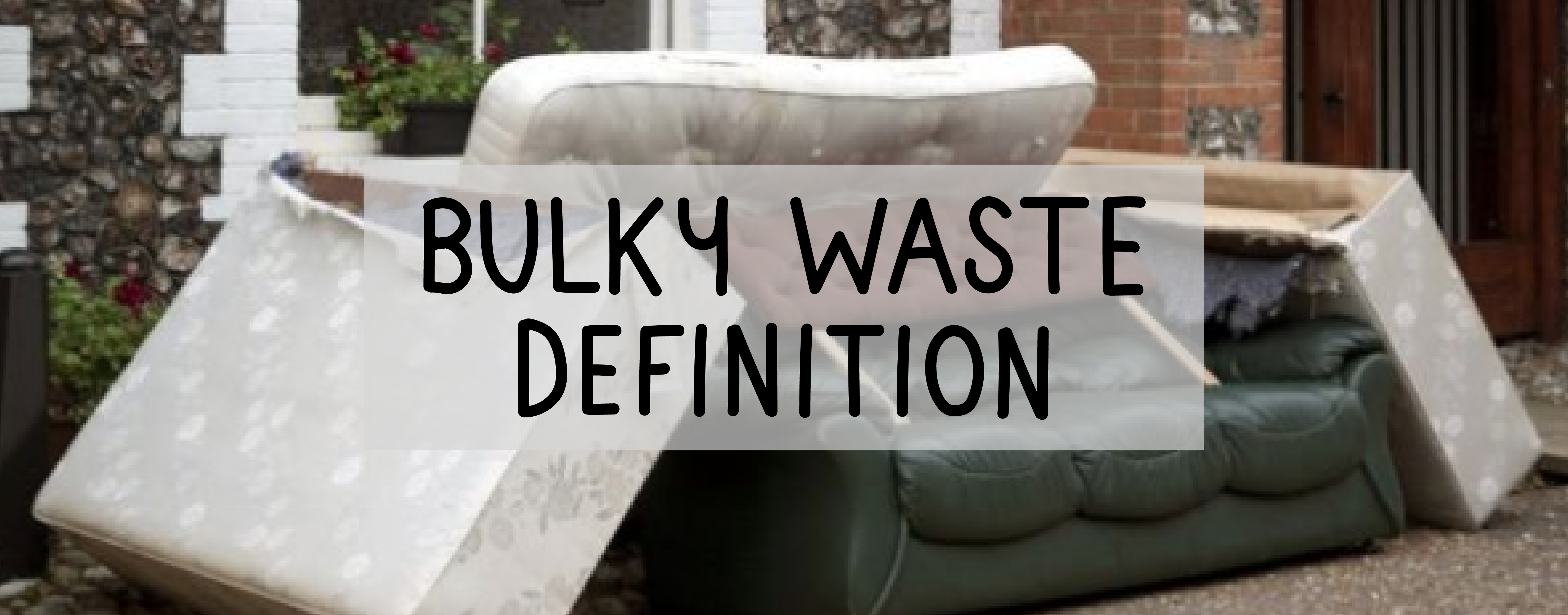Bulky waste definition
What is considered bulky waste? An detailed review of large rubbish and junk that is too big for the bin
Are you looking for information about what is considered Bulky Waste by councils? Great. Please read on! This article covers everything you need to know about the subject, including the different types and a link to the best ways to dipose of it.
1. Definition of Bulky Waste
'Bulky waste' is any material or item you wish to dispose of that does not fit in your regular bin. You can categorise it by how messy it is (Clean vs Dirty) and who created it (Household vs Commercial).
2. Clean vs Dirty
Let's look at the distinction between clean and dirty types of bulky waste in more depth:
- Clean bulky - often referred to Junk and means non-dirty waste items that come from within the home or office. Examples are furniture (eg. sofa, chair, wardrobe, table, desk, filing cabinet, mattress, garden bench), appliances (e.g. fridge, dishwashers, washing machine, microwave, cooker, dryer, mower), and soft furnishings (eg. duvet, curtains). It also covers general bric-a-brac like broken toys, ironing boards, and exercise equipment. Packaging material (eg. large cardboard boxes, polystyrene) is often also included in this category because they it doesn't leave dust and mess if you move it around.
- Dirty bulky - often referred to as Bulky Rubbish. It is the messy, loose waste created from home improvement/ builder work and also bulky garden refuse. Examples you will be most familiar with are broken tiles, soil, bricks, rubble, pipes, doors, windows and window frames. Dirty bulky waste also covers plasterboard and drywall, MDF, kitchen and bathroom units, sheds, fence panels, and carpet, flooring & underlay. It’s the sort of rubbish you’d generally rather not put in your car without first putting down some protective covers. Your natural inclination would be 'this needs a skip'.
3. How do councils define it?
Councils typically limit their definition of bulky waste to “items you take with you when you move house”. They do this is because they have a statutory obligation to receive Clean Junk from householders at their civic amenity sites free of charge. However, that duty does not extend to commercial waste or waste from home improvement, construction or demolition work.
4. Household bulky waste compared to commercial bulky waste
Whether waste is household or commercial is relevant because it affects which rubbish clearance options you can use and how much they will cost you.
- Commercial - waste can classified as commercial because of its location or who created it. If it is located at a non-domestic premises (eg. office, factory, church, hotel, hostel, commercial yard) it will be commercial. Equally, if the person who created it was working for a business or as tradesperson (eg. builder, kitchen fitter, handyman, office employee), it will be considered commercial waste, This is regardless of where the activity was performed.
- Household - any waste created by a householder at their home is household waste. This includes someone living in serviced apartments or hotel if they created the waste and live there. However, you should bear in mind that most councils exclude home improvement waste from their council bulky waste collection service.
More reading
Are you looking for more information and guidance on this subject? Please read our How to dispose of rubbish guide.







